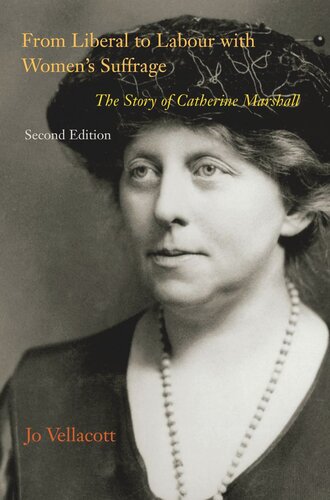

Most ebook files are in PDF format, so you can easily read them using various software such as Foxit Reader or directly on the Google Chrome browser.
Some ebook files are released by publishers in other formats such as .awz, .mobi, .epub, .fb2, etc. You may need to install specific software to read these formats on mobile/PC, such as Calibre.
Please read the tutorial at this link: https://ebookbell.com/faq
We offer FREE conversion to the popular formats you request; however, this may take some time. Therefore, right after payment, please email us, and we will try to provide the service as quickly as possible.
For some exceptional file formats or broken links (if any), please refrain from opening any disputes. Instead, email us first, and we will try to assist within a maximum of 6 hours.
EbookBell Team

5.0
108 reviewsCatherine Marshall was a vital figure in the women's suffrage movement in Britain before the First World War. Using her remarkable political skills on behalf of the major non-militant organization, the National Union of Women's Suffrage Societies (NUWSS), she built close connections with major suffragist politicians, leading some, in all three parties, to consider adopting a measure of women's enfranchisement as a party plank. By 1913 Marshall was uniquely placed as a lobbyist, with inside information and sympathetic listeners in every party. Through her the dynamically re-organized NUWSS brought the women's suffrage issue to the fore of public awareness. It pushed the Labour Party to adopt a strong stand on women's suffrage and raised working-class consciousness, re-awakening a long-dormant demand for full adult enfranchisement. Had the general election due in 1915 taken place, NUWSS financial and organizational support for the Labour Party might well have been substantial enough to influence the final results. These impressive achievements were forgotten by the time Catherine Marshall died in 1961. Even recent research on the period has failed to show the full significance of the issue of women's suffrage, much less Marshall's part in the movement. Jo Vellacott's revealing account of Marshall's political work also includes vivid descriptions of a liberal Victorian childhood, a strangely purposeless young adulthood, and the heady experiences of women who, through the awakening of political consciousness, forged a lifestyle to fit their new aspirations.